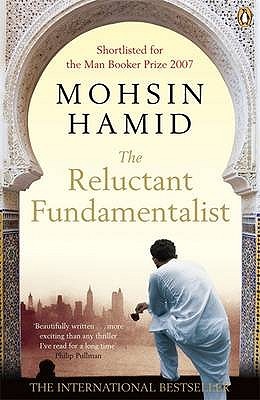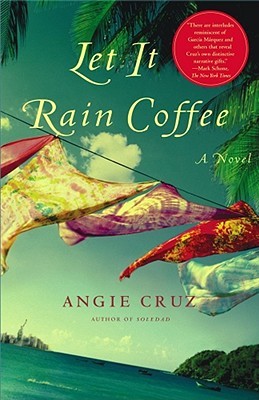A Guide to Second Novels that Nail the 'Sophomore Surge'

Mateo Askaripour's first novel, Black Buck, takes on racism in corporate America with humor and wit. It was an instant New York Times bestseller and a “Read with Jenna” Today show book club pick. Askaripour was chosen as one of Entertainment Weekly’s “10 rising stars to make waves” and was named as a recipient of the National Book Foundation’s “5 Under 35” prize. His second novel, This Great Hemisphere, will be published in July. He lives in Brooklyn.
We all love debut novels, right? An author’s grand, and sometimes not-so-grand, entrance into the literary arena. That flag in the ground, where they say, “See me, read me, and please, oh pretty please, buy enough books so I can pay this month’s rent.” One of the most beautiful aspects of reading a debut you love is the promise of more to come. An illustrious career where the novelist grows, soars, and defies expectations. Where they surprise you with their capacity for creation, their otherworldly way of wielding the written word.
For me, writing my debut novel, Black Buck, was one of the most liberating and exciting endeavors I’ve ever undertaken. It was the third book I wrote—the first two yielded no book agent or book deal—and it was the novel I wrote once I reached what I call the “screw it” stage. I actually use a different term for it, but I’m trying to keep it PG-13. That was the stage when all bets were off, when I said that I was writing the book I wanted, in the way I wanted, for the people I wanted it to resonate with. It was fun. Maybe I had too much fun, according to some of the Goodreads reviews. C’est la vie. While writing Black Buck, no one knew who I was; no one was expecting anything from me, and it was a magical moment that I’ll never be able to get back, as all those who enjoyed my first novel await my next. One that hopefully makes good on the promise of a long and strong career.
But sometimes, yes, sometimes, there is the “slump.” The sophomore slump, that is. Unfamiliar with the term? Well, it’s self-explanatory. But just to hit the point home, it is when you’ve achieved some modicum of success—however you define it—with your first work, and the second comes out and deflates with the womp-wompness of a soufflé. It is what I’m hoping doesn’t happen when my next novel, This Great Hemisphere, comes out in July of this year.
Some writers say that a second book is what makes you a real writer, because maybe the first just poured out of you, like mine did. Or it was a fluke. Or something else that would explain away the tons of work that goes into writing and publishing a book. I disagree with this sentiment. Writing makes you a real writer. Publishing a book—whether it’s your first or 50th—makes you an author. And even if you try to play it safe and stay in your lane with your second novel, aiming to replicate the success of your first, a “sophomore surge” isn’t guaranteed. It’s especially not assured if you take risks, like I did with This Great Hemisphere, and move into a completely different genre, write in a completely different tense, and, you know, casually set a book 500 years in the future.
Still, along with all of the anxiety, pressure, and, I’ll say it, fear of publishing your second novel, comes excitement, hope, and, ideally, a sense of pride from a thing well made. All of these thoughts made me think of the many beloved authors who have published sophomore novels and lived to tell the tale, as well as all of those who, like me, stand at the vertigo-inducing precipice, looking down, looking out, looking up, and, most likely, looking in.
My list, while including contemporary and classic authors alike, and authors from a variety of countries, is an incomplete one. So if there’s an author’s second novel that you just love, please share so we can collectively bear witness to the anti-slump. The surge! The swell! The…OK, we can stop there.
Classics
Comments Showing 1-8 of 8 (8 new)
date newest »
newest »
 newest »
newest »
message 1:
by
Law
(new)
Feb 19, 2024 02:01AM
 Where to start? I've heard of Celeste Ng before.
Where to start? I've heard of Celeste Ng before.
flag
 “The Sign of the Four”, by Sir Arthur Conan Doyle. “The Secret Adversary,” by Agatha Christie. “The Starless Sea,” by Erin Morgenstern. “The Devil and the Dark Water,” by Stuart Turton. Just to name a few.
“The Sign of the Four”, by Sir Arthur Conan Doyle. “The Secret Adversary,” by Agatha Christie. “The Starless Sea,” by Erin Morgenstern. “The Devil and the Dark Water,” by Stuart Turton. Just to name a few.
 my ultimate second novel is penance by eliza clark !! boy parts was great, but penance was basically perfect to me - it's about twice the length, a bit slower, a bit more mature, and cut so much deeper for me. an absolute second book surge !!
my ultimate second novel is penance by eliza clark !! boy parts was great, but penance was basically perfect to me - it's about twice the length, a bit slower, a bit more mature, and cut so much deeper for me. an absolute second book surge !!















































































